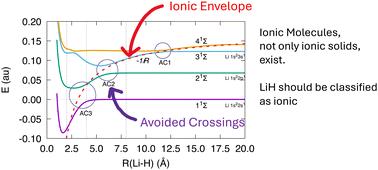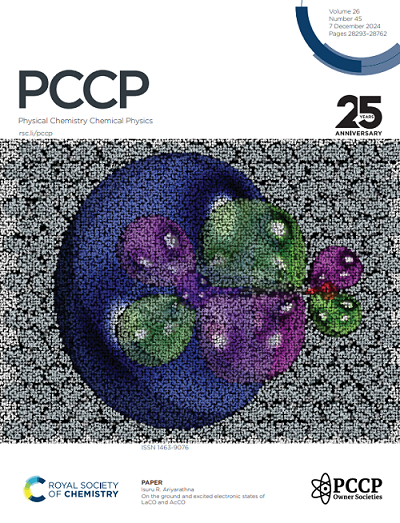Can we talk about ionic bonds in molecules? Yes, just as we do for covalent bonds†
IF 2.9
3区 化学
Q3 CHEMISTRY, PHYSICAL
引用次数: 0
Abstract
A claim that ionic bonds exist only in ionic solids is critically analyzed by focusing on the controversial LiH molecule, classified as covalent by non-orthogonal valence bond supporters, polar-covalent by molecular orbital advocates, and ionic by real-space proponents. Using orbital invariant techniques we show that LiH can be regarded ionic in the same manner that dihydrogen is considered covalent.

我们能讨论一下分子中的离子键吗?是的,就像共价键一样
离子键仅存在于离子固体中的说法,通过关注有争议的LiH分子进行批判性分析,由非正交价键支持者分类为共价键,由分子轨道支持者分类为极性共价键,由实空间支持者分类为离子键。利用轨道不变性技术,我们证明LiH可以被视为离子,就像二氢共价一样。
本文章由计算机程序翻译,如有差异,请以英文原文为准。
求助全文
约1分钟内获得全文
求助全文
来源期刊

Physical Chemistry Chemical Physics
化学-物理:原子、分子和化学物理
CiteScore
5.50
自引率
9.10%
发文量
2675
审稿时长
2.0 months
期刊介绍:
Physical Chemistry Chemical Physics (PCCP) is an international journal co-owned by 19 physical chemistry and physics societies from around the world. This journal publishes original, cutting-edge research in physical chemistry, chemical physics and biophysical chemistry. To be suitable for publication in PCCP, articles must include significant innovation and/or insight into physical chemistry; this is the most important criterion that reviewers and Editors will judge against when evaluating submissions.
The journal has a broad scope and welcomes contributions spanning experiment, theory, computation and data science. Topical coverage includes spectroscopy, dynamics, kinetics, statistical mechanics, thermodynamics, electrochemistry, catalysis, surface science, quantum mechanics, quantum computing and machine learning. Interdisciplinary research areas such as polymers and soft matter, materials, nanoscience, energy, surfaces/interfaces, and biophysical chemistry are welcomed if they demonstrate significant innovation and/or insight into physical chemistry. Joined experimental/theoretical studies are particularly appreciated when complementary and based on up-to-date approaches.
 求助内容:
求助内容: 应助结果提醒方式:
应助结果提醒方式:


